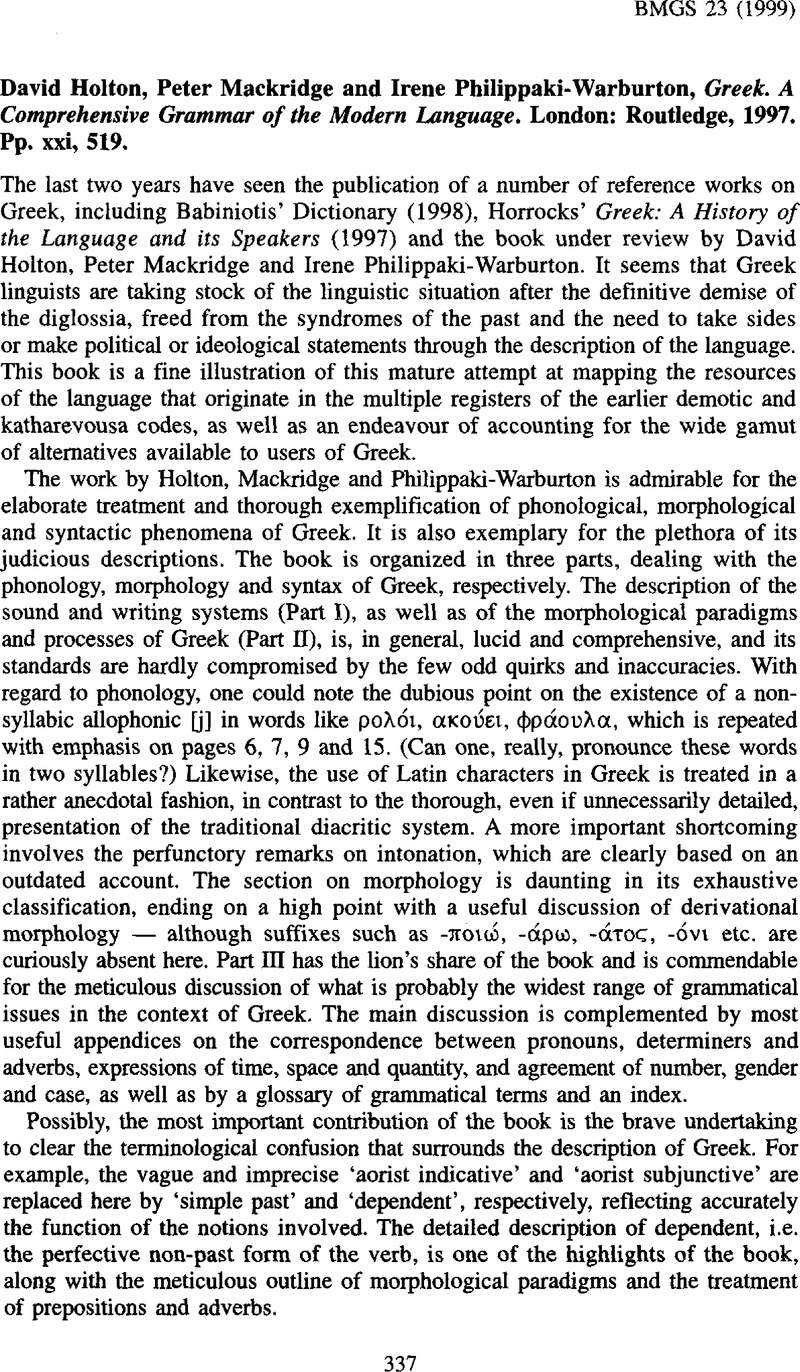No CrossRef data available.
Article contents
David Holton, Peter Mackridge and Irene Philippaki-Warburton, Greek. A Comprehensive Grammar of the Modern Language. London: Routledge, 1997. Pp. xxi, 519.
Published online by Cambridge University Press: 22 January 2016
Abstract
An abstract is not available for this content so a preview has been provided. Please use the Get access link above for information on how to access this content.

- Type
- Reviews
- Information
- Copyright
- Copyright © The Centre for Byzantine, Ottoman and Modern Greek Studies, University of Birmingham 1999
References
Biber, Douglas (1988). Variation across Speech and Writing. Cambridge: Cambridge University Press.Google Scholar
Carter, Ronald and McCarthy, Michael (1995). ‘Grammar and the spoken language’. Applied Linguistics
16, 141–158.CrossRefGoogle Scholar
Georgakopoulou, Alexandra and Goutsos, Dionysis (1998). ‘Conjunctions versus discourse markers in Greek: The interaction of frequency, position and functions in context’. Linguistics
38 (5).Google Scholar
Goutsos, Dionysis (1994). ‘Explore discourse conditions on word order phenomena in Greek’. Journal of Modern Greek Studies
12 (2), 171–183.Google Scholar
Laskaratou, Chryssoula (1989). A Functional Approach to Constituent Order with Particular Reference to Modern Greek. Athina: Paroussia.Google Scholar
Sasse, Hans-Jürgen (1987). ‘The thetic/categorical distinction revisited’. Linguistics
25, 511–580.Google Scholar


